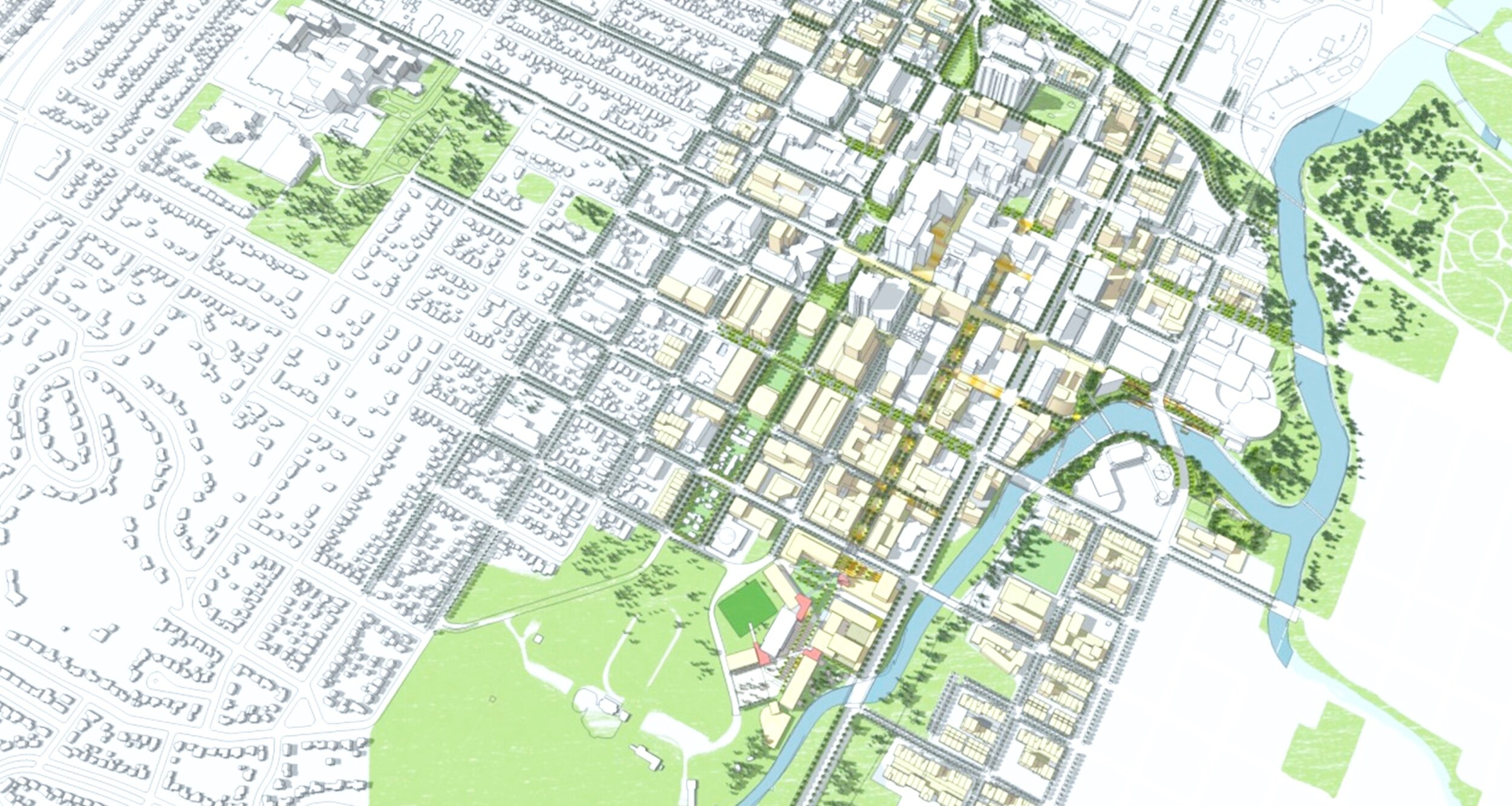
Mission
The Future of Small Cities Institute cultivates resilient communities by offering just and sustainable solutions for small and mid-sized metro areas. We do this by fostering local community partnerships and a regional city network, producing cross-platform resources and publications, hosting a dynamic urbanism event series, and by building a tangible knowledge-base of best practices for small cities.
Our Work
What do we value in our communities and what do we want our cities to look like in the future?
EVENTS
The Institute curates the Future of Small Cities event series, bringing in internationally recognized speakers to discuss case studies in urbanism. The Institute also hosts workshops and conferences on topics centered around cultivating sustainability, pushing and funding green infrastructure projects in the region, promoting environmental justice, and combating institutionalized racism and inequality in the community.
COMMUNITY OUTREACH
In partnership with local community groups, the Institute provides outreach into neighborhoods and schools that aren’t usually a part of urban planning discussions and empowesr community members to engage in a conversation about the kinds of places we want our cities to be. In tandem with academic institutions, we engage in community-lead qualitative surveys that lead to action items.
REGIONAL CITY NETWORKS
The Institute offers a knowledge-based network for the small cities of the Northeast, facilitating connections and building up a body of actionable items for small metros that sometimes lack traditional planning departments but also possess an engaged and motivated citizenry.
PUBLICATIONS
The Institute produces cross-platform publications and resources, including the upcoming Future of Small Cities Podcast, around a variety of topics including community green infrastructure, sustainable development, fostering and sustaining pedestrian and cyclist culture, reimagining our highways, activating waterfronts, and facilitating community and government partnership in small cities.
INTERVENTIONS
In partnership with local organizations, academic institutions, and city governments, the Institute helps implement carefully designed infrastructure interventions like pocket parks, traffic calming measures, bicycle lanes, renewable energy infrastructure, composting systems, rapid transit, art installations, and dynamic community spaces.
FOCUS LAB
The Institute ran the FOCUS (Future of Cities and Urban Sustainability) Lab form 2021-2023, an exhibition space and urban room in Downtown Troy, NY. The Lab was a partnership between FoSCI, the City of Troy, Rensselaer Polytechnic Institute, and the Children’s Museum of Saratoga. The space runs school visits and host community groups.
Why We Do This Work
With the entangled threats of climate change, spiraling inequalities, and institutionalized prejudice, our country’s cities face a multitude of challenges and uncertainties in the coming decades. Rising seas, volatile weather, climate refugees, and increasingly stratified megalopolises are becoming common-place. Yet there is still time to fundamentally embrace sustainability and inclusion as governing tenets for our society—it will take massive spiritual, intellectual, and financial investment, but a just, resilient society is within our reach, if only we act now, with mindful urgency.
Often overlooked by policymakers and understudied by researchers, small cities offer a model to enact a just, resilient society and provide an evolving alternative to the big city’s entrenched gridlock and rampant inequities. Small cities have a unique ability to address complex issues as they are often more socially, politically, and ideologically nimble than their larger counterparts. Prototypes can be tried, tested, implemented. Popups can thrive. Small infrastructural experiments can have profound effects. Such nimbleness is partly due to the relatively short distance between the city leadership and the populace. Yet a small city must also work within the confines of a more limited population and budget, which can encourage innovation solutions, creative problem solving, and meaningful community engagement.
While its findings will be nationally applicable, the Future of Small Cities Institute will be rooted in the communities of the Capital Region and Hudson Valley. The region’s small cities are fast becoming a motivated, informed, and active network, including places like Poughkeepsie, Newburgh, Kingston, Hudson, Troy, Albany, and Schenectady, all of which are wrestling with similar questions of identity, inclusion, and resilience. Even before the Covid-19 pandemic, we were witnessing a migration of people out of NYC up the Hudson corridor into these communities, all of which offer an affordable, high quality of life, a certain density, an access to the outdoors, and a spirit of possibility. The pandemic has only accelerated this migration and small cities have been forced into an existential self-reckoning, essentially asking, “What do we value in our communities and what do we want our cities to look like in the future?”
The Future of Small Cities Institute found its roots in the Troy Innovation Garage, which was the site of the Future of Small Cities 2019-2020 event series and masterclass. The community space of the Garage provided fertile ground to conceptualize the series, nurture the networks, and eventually blossom the work into this institute. Building upon this spirit of innovation, the institute will provide programming and a conceptual laboratory space to grapple with this question holistically by bringing people together from a wide variety of disciplines, including community members, business owners, artists, developers, academics, city planners, architects, elected officials, activists, and scientists.
While flexible to the evolving needs of the community, the institute’s main focus will be the intersection of social justice and climate change: How can we meet the challenges of entrenched inequality and build and nurture inclusive cities that provide jobs, housing and opportunities for all while simultaneously creating resilient, sustainable communities that are ready to solve the challenges brought on by the climate crisis?
Support Our Work
Support The Future of Small Cities Institute by making a tax-deductible donation or becoming a monthly donor! The Future of Small Cities Institute is a registered 501(c)(3) charity.













